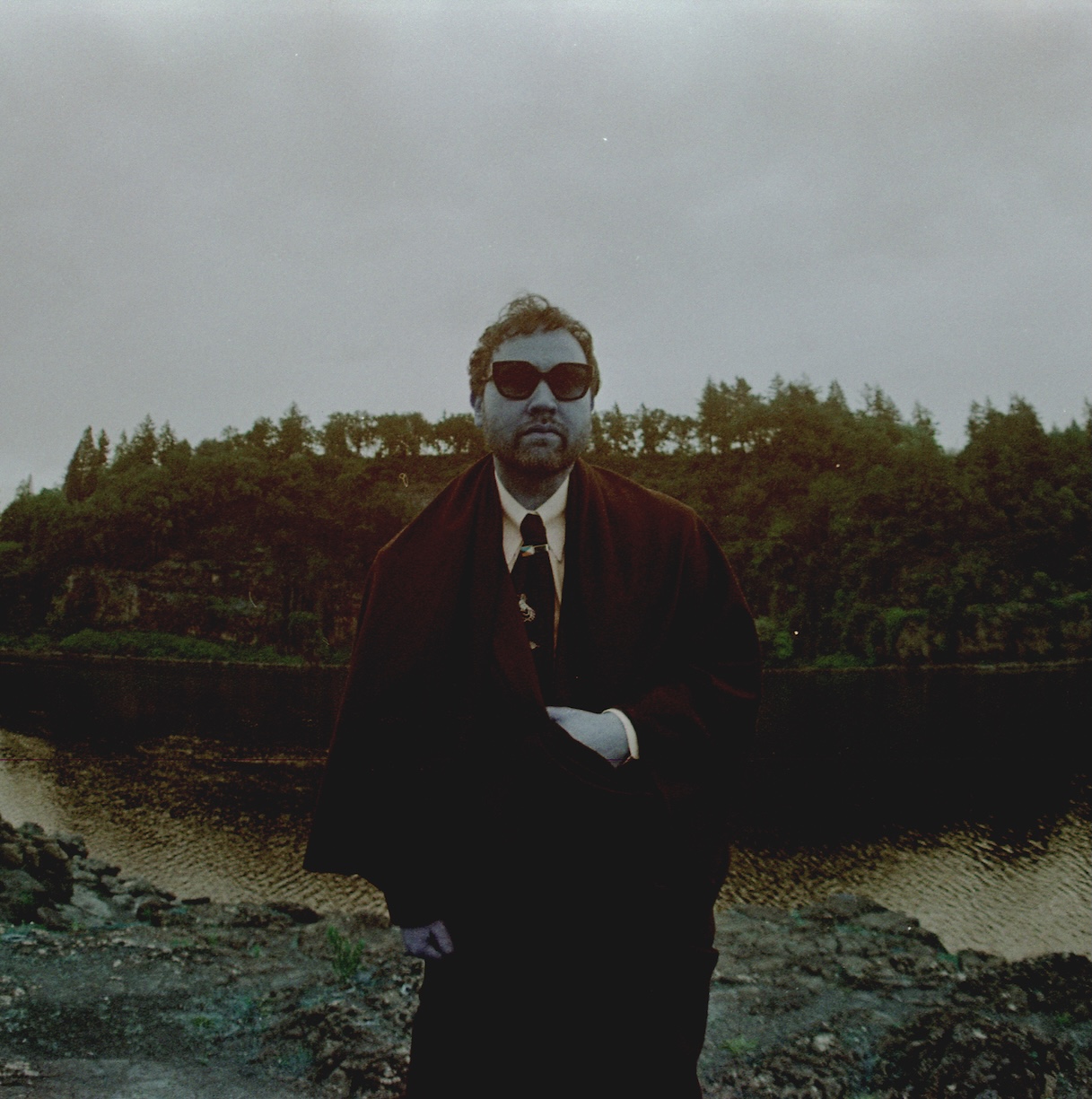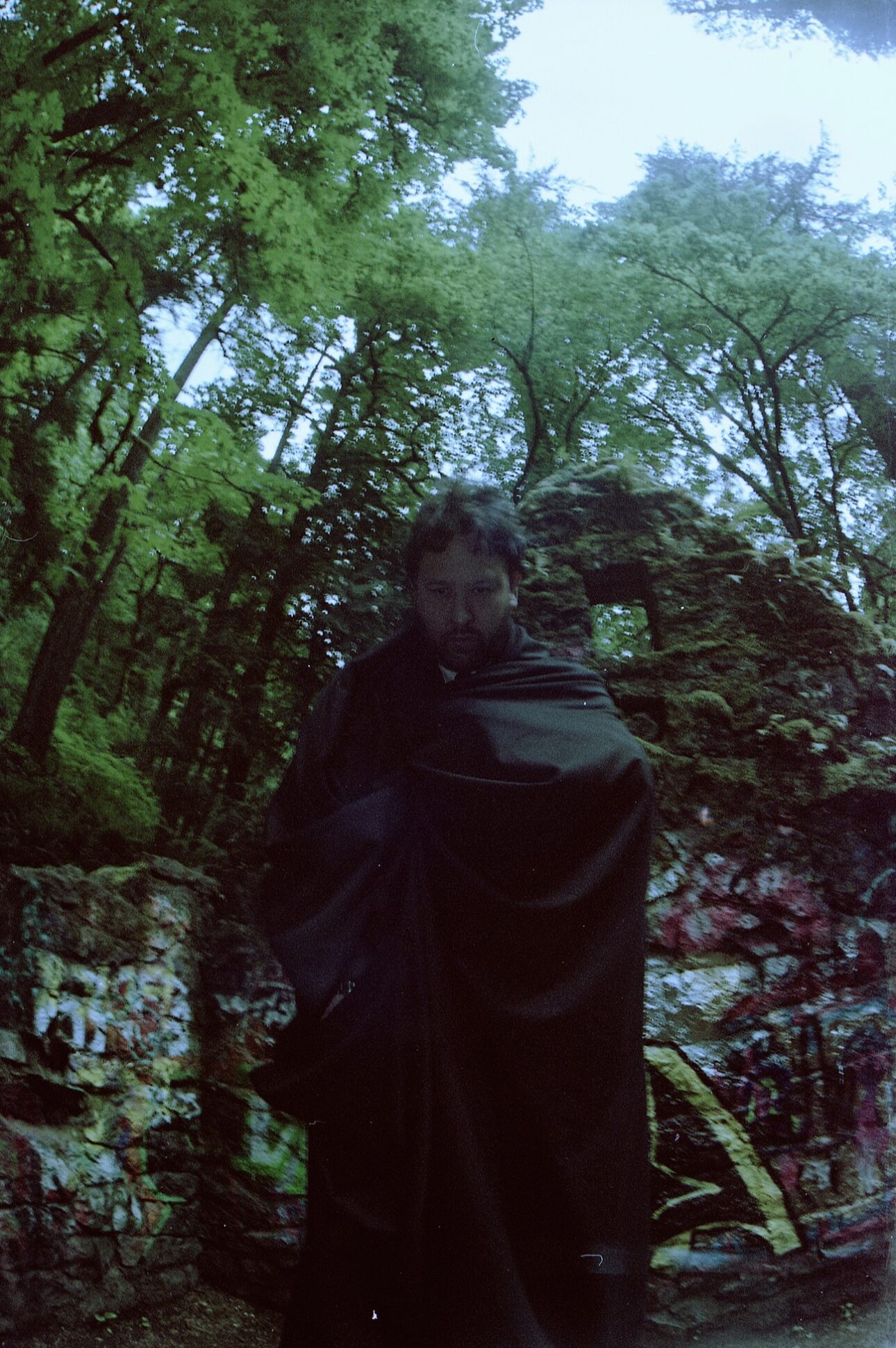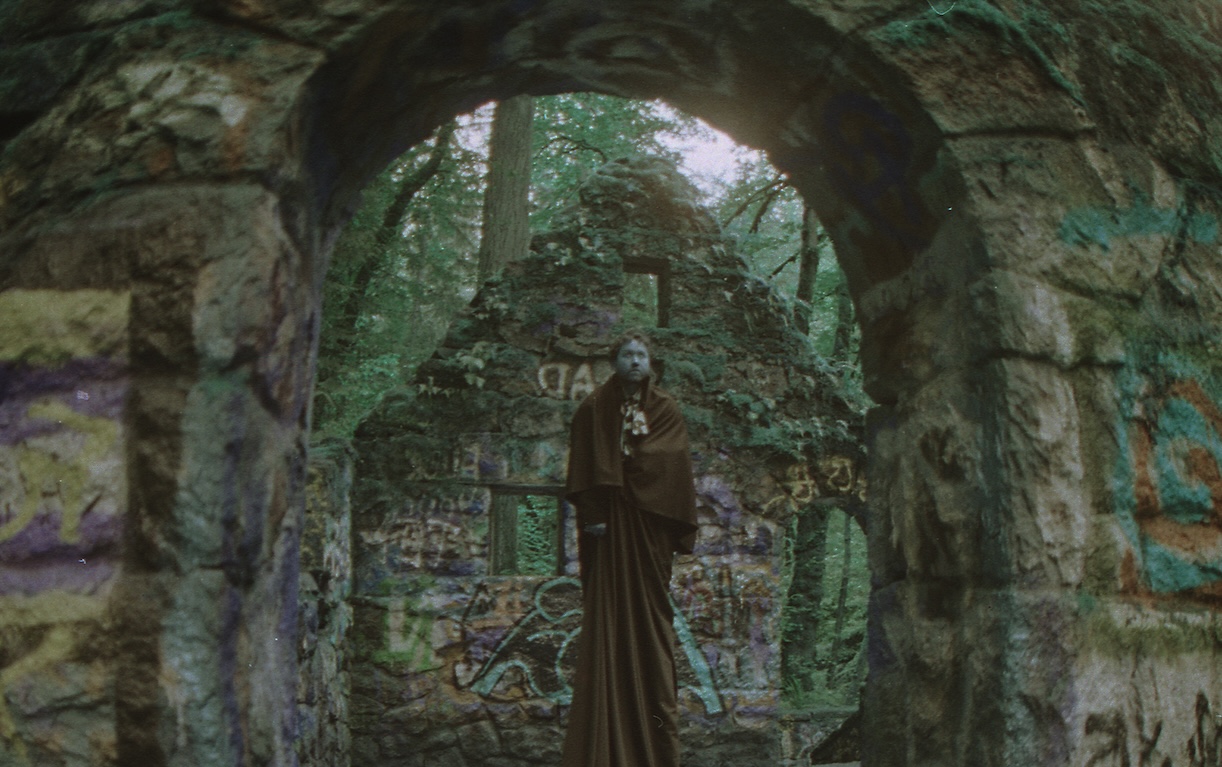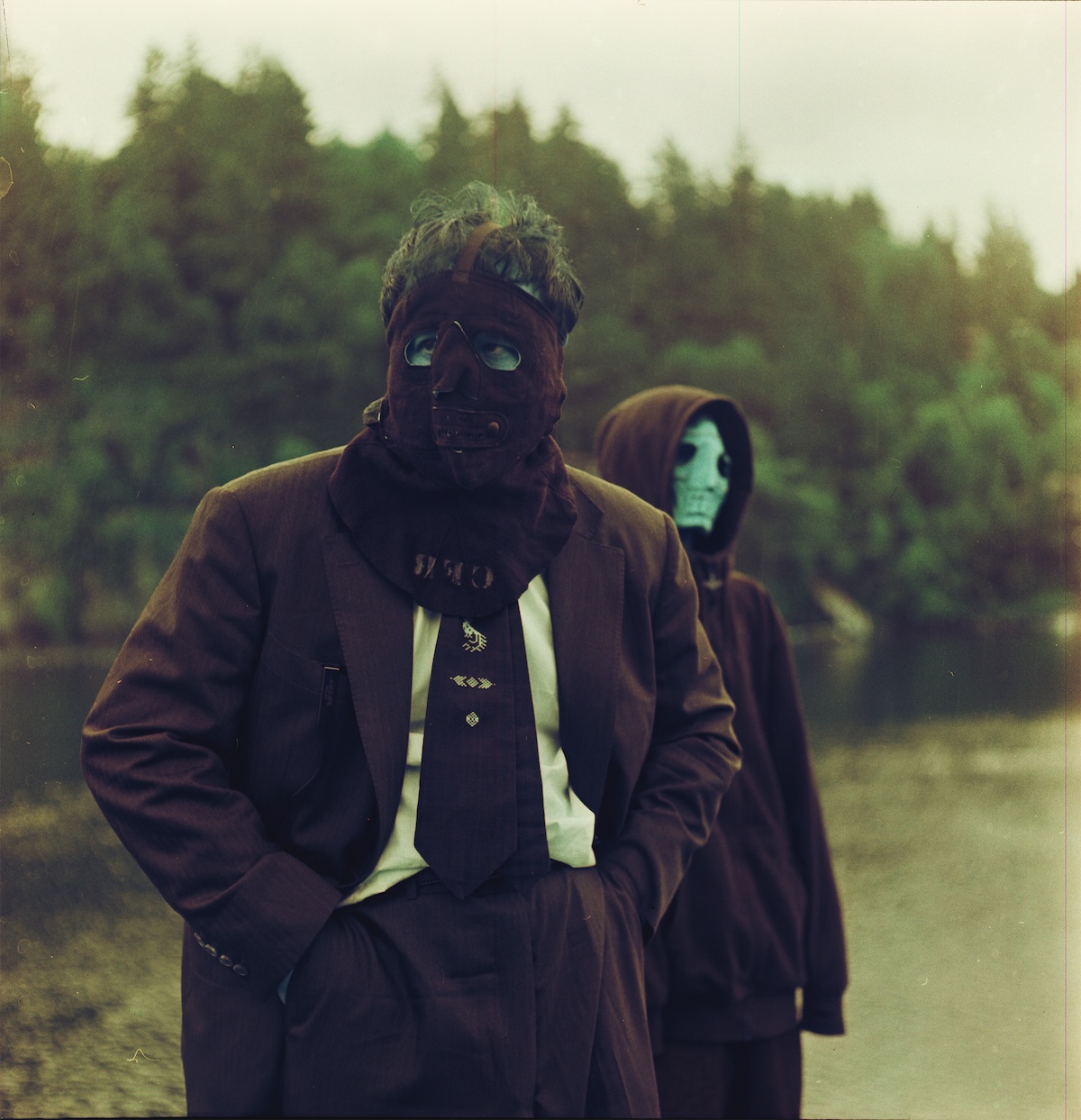Unknown Mortal Orchestra’s Ruban Nielson doesn’t make eye contact as he holds his phone up to his face with both hands. He is at his Palm Springs home, where he lives when he’s not in Portland, Oregon, his residence since the mid-2000s after moving to the city from his native New Zealand. His setting is nondescript, which is a relief as what he is sharing about his most recent release, the six-song Curse EP, is heavy, and unexpected. It’s easier to focus on the eye tattoo in the middle of his neck.
Curse is Nielson’s second release this year. The first was IC-02 Bogota, part of his Instrumental Cities series. Curse stands apart from that album as it is the aural representation of Nielson’s emotional experience during the cancer diagnosis of his sister, who was 12 years younger than him, and her demise within two months in November 2024, as well as its aftermath.
More from Spin:
- Sean ‘Diddy’ Combs Found Not Guilty On Three Most Serious Charges
- ‘Today’ Is The Day For A New Foo Fighters Song
- Dropkick Murphys are ‘For the People’
The EP holds a lot of feelings, from sadness and anger to isolation and despair. At times it is claustrophobic and at other times it is a release. Curse is the heaviest and the most horror-based Nielson has ever been. But it’s also exploratory and uninhibited. It almost didn’t get made as he felt it might be “self-indulgent.” Yet the EP is what has helped him move from one stage of grief to the next, and looking back on it, he realizes he “had no choice.”
Nielson apologizes at regular intervals after bursts of what he feels is oversharing, and questions whether what he’s saying makes sense. I assure him it does and that sometimes it’s easier to talk to a stranger, and that with the amount of experience I have had with loss, I consider myself the death keeper, and am willing to help him hold his loss too.

What inspired the EP?
A lot of things on a few different levels, but the thing that mostly sent me on the path of how dark it is, is my sister passed away recently. She had a pretty hard life. She discovered that she was riddled with cancer. As soon as I found out, I got a flight back to Auckland in New Zealand, where I grew up, and where she lived. She was quite a strange person. She had so much anxiety, she needed someone around all the time. I was with her every day for a couple of months through the whole process. She was 12 years younger than me. She was my baby sister. Being around her through that process left me feeling like I could only watch horror movies and only listen to really heavy music. I wasn’t able to feel good at all for a long time.
It was such a horrible thing, I didn’t feel inspired to work or be creative. But then I realized, I make music a lot to get past feeling depressed or feeling negative emotions. So I started making music. I was watching horror movies most days. I don’t know what it is about that. Maybe it’s catharsis. Surround yourself with horrible images and it kind of dulls out bad memories.
How come you decided on an EP rather than an album?
Originally, all that material was supposed to be the next album. I didn’t know if it was good music, but I knew it was real. It comes from an honest place. I thought, “Why don’t I put out what I have now instead of completing a full album of this? If I stay here for another six months in this mindset, I don’t think I’ll be able to escape this stage of grief.” The more I thought about it, the more it felt like a good amount of this feeling, and a good amount of time to be here. I want to move to the next stage.
Because I was doing everything by myself, I’d gone back to being insular. I didn’t want to be around my bandmates. But I was thinking, “I don’t know if it’s good for me if I stay here and make an entire album of this. And I don’t know if an entire album of this will be good. It might go too far, and it might be too much time from beginning to end to dwell on this kind of melodramatically negative place. But if I call it quits here and call that an EP, then there’s something almost fun about how spooky and creepy and dark it is.” It felt natural to cut it off here and start work on an album—which might still be music that seems related to this EP, but the difference will be that I need to start working with my bandmates and need to start spending time with people again.
I don’t want to use my music output to be about grieving and healing and all of that stuff. That’s pretty self-indulgent. But it was just such a big event and hard time, I had no choice.

As an artist, making art is your way of dealing and grieving and healing. It’s definitely not self-indulgent. But you made the EP entirely by yourself?
Yeah, I didn’t feel like seeing anyone. It was alienating me from my dad and my mom and my family. I’d been through this intense thing, at times nightmarish, but also really intimate. What my sister and I went through, she’s the only other person that knows. So going through this thing that was really intense, but then having no one to talk about it with was really strange. I didn’t even think to spend time with other people.
It feels like I’m in a different stage of grieving, where I can start to talk about it. I’m not even sure if I should have talked about it, but it’s hard to talk about the EP without being honest. I feel like I’m in another phase now and I’m grateful that music can do that for me. If not music, I’m not quite sure what my way out of that period of time was going to be. Feeling very nihilistic and dark about everything, it’s good to turn it into something I can put outside myself and feel a little bit detached from now.
What “heavy music” were you listening to?
I was trying to pick things from my childhood that were dark. I had this friend—we met when we were teenagers—who died really recently. He was a real metalhead. He listened to a lot of dramatic death metal and black metal: Mayhem, Darkthrone, Nile. He also got me into a lot of Italian horror films. To me, it was always a little too much. When my sister died, I found myself listening to that stuff. And of course Sabbath, the perfect metal band. I wasn’t thinking that I was making a dark album, or a sad album, or an angry album. I just thought of it as a horror movie.
But I was thinking this music will be a bummer. This is not a good place to make music from, because I want to make things for people to enjoy. I want something to make people feel better, not worse. When I realized that it was a horror thing, I thought, people like horror movies and I love horror movies. Why do I enjoy it so much?
The thing about horror movies that I really have always liked is they’re always about our subconscious fear, what we’re afraid of at the moment, or some angst we’re feeling. Then the movie can be about something that is kind of on the surface, makes us feel an adrenaline rush when we jump, or can make us feel scared on a surface level. But the theme of the movie is usually something that’s going on underneath. I was thinking, maybe this is how I connect to other people. We’re all going through things. It’s not like I’m going through this really dark period and everybody else is normal. These themes connect in ways that I don’t understand, in the same way as horror movies. If I stay in that mindset, then it makes sense. Maybe it’ll be music that other people will be able to get something out of.

What’s the draw to horror films?
On the surface, watching horror movies is a horrible thing. It’s an awful thing to do to yourself. But it’s got something to do with catharsis. When I was a kid, I used to feel this huge relief after watching a horror movie. That thing that I was just afraid of, that’s not my life. It’s like waking up from a nightmare. You can feel terrible, but at the same time you feel exhilaration. That’s not my life. My life is more normal than that.
Earlier in the year, after getting back from New Zealand, after everything that happened, I was thinking, this is like a bad dream, but it’s real. You wake up and it’s like Groundhog Day. Every day sucks. And people tell you it gets easier. I don’t want it to get easier. I want to feel terrible in tribute to my sister. I want to feel terrible for the rest of my life. It does get easier, but not because you get better. It’s with you every day. You get used to this awful reality. You don’t forget them. That’s the crazy part of it. You get comfortable with this growing list of people that you miss.
I think that’s what the name of my band is about. When I was a kid, my grandmother died and I felt like she was following me around. As you get older, there’s two people that follow you around, then three, then four, then five. I’m a middle-aged man now. It’s a chorus of people, of ghosts. Nobody knows anybody else’s chorus. Nobody knows what it feels like to be somebody else being followed around by all the people they lost.
I feel this EP will connect in a powerful way with your fans.
My instinct at first was not doing it. I’m not going to start putting my feelings down in my work. It is too painful. It is too negative to work with. I felt like it wasn’t going to be translatable. There was something chintzy and tacky about trying to express myself through this EP. I felt much more nihilistic than that.
But then, when I sat down and tried to do stuff, the songs on the EP, none of them are directly about my grief. They’re all abstract, or they’re about other things. Maybe that was the key. This is not about what happened with my sister. I just have to get this feeling out. Once I found that place, I could immediately feel that somehow this is helping. It was helping in the same way that watching horror movies and listening to death metal was helping. It’s almost like it takes me out of myself a little bit. Instead of everything folding back in on itself, it was like something was coming out of me. Even if I felt like it was ugly or scary, it didn’t feel unhealthy. So I just kept going. At times like that, you don’t get to choose behaviors.

I’m really glad I wasn’t going for anger. I was worried that I might relapse, pick up some particular drug or something. I lost a few important people in my life and I had been like this before, so I was a bit worried. When I started making music, I thought, “This is the way. This is the beginning of me starting to be normal again. Maybe it is tacky, but I’m doing it now, and it’s helping, so it doesn’t really matter.”
I started feeling like what I’d made wasn’t too private to share, because it wasn’t directly about her and it wasn’t directly about my experiences. It was emotionally about the place I was then.
If people see the music I put out as entertainment, I didn’t know if it was a good idea to talk about it. But if, like you say, people need it as much as me, if it has any use for people, that helps me too.
Sometimes I think music is a bit like cooking. You cook for your friends. My wife just bought me a cleaver for a release-day gift. She’s a teacher and one of the colleagues at her school makes these forges. If I made a knife and I heard that my friends are using it, I’d be like, “Oh, that’s cool. That’s so awesome that it has a life after I made it.” Music can be like that too.
Feeling the stuff you make creates something positive in the world is a good thing to feel about your job. Feeling useful is a good feeling. And I feel good about moving on to whatever next music I’m going to make.
To see our running list of the top 100 greatest rock stars of all time, click here.



